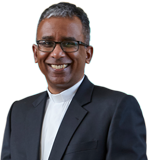Homily for 10 November
Torn tongues, Sadducees, angels, Moses, seven brothers, one wife. Today’s first reading and Gospel have many elements which need a little teasing out.
The hope in a resurrection of the dead was a relatively new one for the Jewish people of Jesus’ time. They had, through most of their history, thought that this life was all there is; that after death there was at best a shadowy half existence in Sheol. The hope for life after death developed during a period of Greek rule; in the third century before Christ, the Greek kings who ruled after Alexander the Great imposed their religion on the Jews with torture and violence – the first reading with its heroism and martyrdom comes from the time of Greek rule. In the light of this experience they started to hope in some sort of resurrection from the dead at the end of time.
But not all of them had this hope. The Sadducees did not. They were a high priestly group which came into political power after Greek rule. They were wealthy and comfortable so they saw no need for resurrection: Life here was pretty good for them; they were truly children of the present age. They believed that God did not interfere much with human history and were not keen on anything upsetting the status quo, challenging their wealth and position in society. Resurrection implied that the present order of things was not perfect; it also implies judgement on their deeds. Naturally, they were not keen on Jesus.
So a group of them come to him with a tricky question trying to show that any idea of resurrection of the dead is nonsensical. Jewish men had been allowed to have more than one wife. What was important was having heirs, male heirs, to carry on one’s line especially since one ceased to exist after death. In the story they tell the woman has no real personhood or significance. She is only important as a bearer of children.
Jesus tackles the real question head on. The Sadducees are so comfortable in this life that they see no need for anything more; they cannot imagine anything different. But the resurrection belongs to a new age; an age inaugurated by Jesus which we glimpse in Jesus and in the life of faith. The life of the risen will be different from life of this age and it will be given to them by God who continues to care for them. The life will be more like that of the angels than of our present earthly existence. The Jews believed that angels were beings created by God with unending life, who live in God’s court and close to him. They are also neither male nor female.
Jesus uses an Old Testament event to drive home his point. When God speaks to Moses, he identifies himself as the God of Abraham, Isaac and Jacob. He does not say, ‘I was the God of Abraham, Isaac and Jacob,’ He says, ‘I am the God of Abraham, Isaac and Jacob’ God remains in relationship with them – to him they are truly alive.
The Gospel is full of Christian hope and speaks to us of true life in death – a life received from God; a life received because of the resurrection of Jesus. It calls us to live here and now as children of God – not children of this age with our comfort secure in this time because this age and its ways will pass away. We are to live out our faith in Jesus Christ fully, wholeheartedly, because in this life of faith, hope and love, which seems foolish to the children of this age, we glimpse the life of the age to come when we will be fully alive in Jesus and his heavenly Father.

